![Gregorio, Guillermo: Faktura (Hat [now] ART) Gregorio, Guillermo: Faktura (Hat [now] ART)](https://www.teuthida.com/productImages/misc4/18491.jpg)
Guillermo Gregorio produces a series of compositions that reinterprets the structural concepts of Constructivism, Concretism, and Madi, focusing on the physicality of sound.
In Stock
Quantity in Basket: None
Log In to use our Wish List
Shipping Weight: 3.00 units
Sample The Album:
Guillermo Gregorio-composer, clarinet, conductor
Carrie Biolo-vibraphone, marimba, percussion
Fred Lonberg-Holm-cello
Jeff Parker-electric guitar
Francois Houle-clarinet
Kyle Bruckmann-oboe
Robbie Hunsinger-English horn
Jeb Bishop-trombone
Jen Paulson-viola
Michael Cameron-acoustic bass
Lou Mallozzi-concrete sound
Jim Baker-piano
Click an artist name above to see in-stock items for that artist.
UPC: 752156014621
Label: Hat [now] ART
Catalog ID: Hat[now]ART146
Squidco Product Code: 18491
Format: CD
Condition: New
Released: 2002
Country: Switzerland
Packaging: Cardstock 3 page foldover
Recorded at AirWave Studios, Chicago IL on July 20th and October 14th, 2000 by Shawn Pierce.
"Faktura is consciously to select material and use it expediently without halting the movement of the construction or limiting its tectonic."-Alexei Gan, 1922
Artist Biographies
• Show Bio for Guillermo Gregorio "Born in Buenos Aires, Argentina, in 1941, American composer and clarinet player Guillermo Gregorio has lived variously in Europe and the United States since 1986. Leading his Chicago-based trio and other ensembles, Gregorio has performed extensively, and his compositions have been recorded on numerous CDs by the Swiss label hatART and the American labels New World Records, Atavistic, and Nuscope, among others. His works have been played by noted New Music ensembles in the USA and Europe, among them Makrokosmos Ensemble (Switzerland) , Ensemble N_ER (EU), International Contemporary Ensemble (USA), Fonema Consort (USA), and the Maverick Ensemble (USA). In addition, as an instrumentalist, Gregorio has worked with many experimental and improvisational groups, including those that recorded the music of Cornelius Cardew, Anthony Braxton, and Philip Corner, among other contemporary composers (see discography for details). As a composer and improviser, Gregorio has collaborated with Fred Lonberg-Holm, Ran Blake, Steffen Schleiermacher, Steve Swell, Jim O'Rourke, Ken Vandermark, Mats Gustaffson, Axel Dörner, Josh Abrams, Jeff Parker, Jason Adasiewicz, Carrie Biolo, George Graewe, Franz Koglmann, Thomas Lehn, Heiner Reinhardt, Le Quan Ninh, Akikazu Nakamura, Ab Baars, Sebi Tramontana, Mary Oliver, Klaus Koch, Gene Coleman, Enrique Gerardi, Paulo Alvares, Vinko Globokar, Makrokosmos Quartet, François Houl, and Stephen Dembski, among others. He participated in the Argentine experimental music scene throughout the 1960s, '70s, and early '80s. His involvement with New Music included both composing and playing clarinet, saxophone and miscellaneous instruments in the Movimiento Música Más (Fluxus Group), the Experimental Group of Buenos Aires, and the Group of Contemporary Music of La Plata, featuring Fluxus events, multi-media spectacles, environmental pieces, and experimental concerts. Some of his earlier work in Argentina is available in the CD Guillermo Gregorio: Otra Música. Tape Music, Fluxus and Free Improvisation in Buenos Aires 1963-70 (Atavistic UMS/ALP209CD). After leaving Buenos Aires Gregorio had the opportunity to experience the European creative music scene of the middle '80s, i.e. the fruitful convergence of Free Jazz and 20th-century music and its interconnections with visual art. The interaction with composers and artists of that milieu constituted an indelible mark in his further explorations. Gregorio-a visual artist himself-has frequently explored the intersection of visual and musical experience. His involvement in visual arts and design is a central influence in his music. In his series entitled "Madi Pieces" and "Coplanars" (1999-2005) Gregorio used Constructivist and geometrically generated ideas in scores ranging from conventionally notated material to graphic systems and open structures. In these compositions, a reinterpretation of the fundamental and structural concepts of Constructivism converges with the historical experiences of Argentinean Conceptualism, Fluxus, intermedia synthesis, and graphic realization. In January 2001, he founded the Madi Ensemble of Chicago, which performed original and historical scores that draw from the conceptual foundation of diverse Argentinean avant-garde currents. His scores related to that period have been exhibited in numerous shows at galleries and institutions, among them the Block Museum of Art (Northwestern University, Evanston, IL), Chelsea Museum of Art (NY), Kettle's Yard Gallery (University of Cambridge, UK), and Elastic, Sound & Vision Gallery (Chicago). Some of Gregorio's works belong to the permanent collections of the MADI Museum and Gallery in Dallas, Texas, and the Centre d'Art Geometrique MADI in Paris. His works have been published in Leonardo, Journal of the International Society for the Arts, Sciences and Technology, Notations 21 (Mark Batty Publisher), Noon Literary Annual, and other specialized publications. His series of pieces entitled "Otra Música" (2005 to the present), composed using conventional notation, focus on history and critical issues as well as syntactic aspects of texts and music. Still maintaining the openness of the works from the former period, the name of the series-"Otra Música"-refers to the title of a monthly column on experimental and avant-garde sounds that Gregorio wrote for a specialized magazine in Buenos Aires during the early '70s. Currently, Gregorio's interests are related to improvisation and "composition in real time" playing clarinet, in addition to the aforementioned compositions. Gregorio has a degree in Architecture, and has worked as a graphic designer. As an educator he taught history and theory of architecture at the University of Buenos Aires, Argentina, and history of industrial design and visual communication at the University of La Plata, Argentina. In the USA he has taught history of 20th-century art and art appreciation at Purdue University North Central, Indiana, sound improvisation at the School of the Art Institute, Chicago, and worked as advisor of Grad Projects in the Sound Department of that School. At the present time Gregorio teaches History of Communication Design at Columbia College, Chicago." ^ Hide Bio for Guillermo Gregorio • Show Bio for Carrie Biolo "Carrie Biolo: Percussion. Percussionist with Wayne Newton. Mom. Yooper. Icelophone designer. Teacher. Pasta maker." ^ Hide Bio for Carrie Biolo • Show Bio for Fred Lonberg-Holm "Fred Lonberg-Holm (born 1962) is an American cellist based in Chicago. He relocated from New York City to Chicago in 1995. Lonberg-Holm is most identified with playing free improvisation and free jazz. He is also a composer of concert works. As a session musician and arranger, he is credited on many rock, pop, and country records. Lonberg-Holm currently leads the Valentine Trio, with Jason Roebke (bass) and Frank Rosaly (drums). This jazz trio performs original compositions as well as tunes by both jazz composers (e.g. Sun Ra) and pop songwriters (e.g. Jeff Tweedy, Syd Barrett). The group released its first album Terminal Valentine, in 2007, which was reviewed by AllAboutJazz critic Nils Jacobson. He coordinates and directs performances of his Lightbox Orchestra, an improvising ensemble with a flexible, ever-changing membership. Lonberg-Holm does not play an instrument in this group, but rather conducts its non-idiomatic improvisations via the "lightbox" and by holding up handwritten signs. The lightbox contains a light bulb for each musician which Lonberg-Holm switches on or off to suggest when they should play. Collective groups of which Lonberg-Holm is a member include Terminal 4 who released an album, in 2003, called When I'm Falling that received four and a half stars, and AMG Album Pick by Allmusic, and it was reviewed by Allmusic's Joslyn Layne, The Boxhead Ensemble, Pillow, the Lonberg-Holm/Kessler/Zerang trio (with Kent Kessler and Michael Zerang), and the Dörner/Lonberg-Holm duo (with Axel Dörner). Among groups led by other people, he is a member of the Vandermark 5, the Joe McPhee Trio, the Peter Brötzmann Chicago Tentet, Keefe Jackson's Fast Citizens, and Ken Vandermark's Territory Band. When he lived in New York, Lonberg-Holm frequently collaborated with the rock group God Is My Co-Pilot pianist and composer Anthony Coleman as well as multi-instrumentalist Paul Duncan of Warm Ghost. In Chicago, he has worked with Jim O'Rourke, Bobby Conn (on "Llovessonngs" [1999] and "The Golden Age" [2001]), The Flying Luttenbachers, Lake Of Dracula, Wilco, Rivulets, Mats Gustafsson, Sten Sandell, Jaap Blonk, John Butcher, and a great many others. Lonberg-Holm's concert works have been premiered by William Winant, Carrie Biolo, the Austin New Music Co-Op, Subtropics Ensemble, Duo Atypica, the Schanzer/Speach Duo, New Winds, Paul Hoskin, Kevin Norton, the E.S.P. Ensemble, and others. His scores for dance have been performed at the Brooklyn Academy of Music and Dance Theater Workshop as well as many other venues. He is a former composition student of Anthony Braxton and Morton Feldman. He performed improvised music in the role of a troubled composer who finds inspiration in the love of a couple he spots on the street in a short film for the Playboy channel." ^ Hide Bio for Fred Lonberg-Holm • Show Bio for Jeff Parker "Jeff Parker (born April 4, 1967) is an American jazz and rock guitarist based in Los Angeles. Parker is best known as an experimental musician, working with avant-garde electronic, rock, and improvisational groups. Parker currently plays guitar in the post-rock group Tortoise and also was a founding member of the ensembles Isotope 217 and the Chicago Underground Trio in the 1990s and early 2000s. He is also a member of the Association for the Advancement of Creative Musicians, as well as working with musicians George Lewis, Ernest Dawkins, Brian Blade, Joshua Redman, Fred Anderson (musician) and Jason Moran. He has released three solo albums: Like-Coping, The Relatives and Bright Light in Winter." ^ Hide Bio for Jeff Parker • Show Bio for Francois Houle Francois Houle (born August 17, 1961, Lachine): "I am a Canadian clarinetist who embraces pretty much any music where the clarinet is present, or has a bit of profile or history. Although I am classically trained, I have not followed the traditional career path associated with the kind of classical training I came out of. I studied at McGill University with Emilio Iacurto (the legendary, long-time principal clarinetist of the Montreal Symphony Orchestra) and at Yale University with Keith Wilson (whose contribution to the clarinet world is unparalleled). I've had the privilege of participating in masterclasses with some of the world's finest clarinet players, including David Shifrin, Richard Stoltzman and Alan Hacker. It was Alan Hacker who actually opened the door for me to explore new technical and musical possibilities on the clarinet. Having been part of Fires of London and a close collaborator with composers such as Peter Maxwell-Davies, Alan's insatiable curiosity and deep scholarship inspired me to look for my own personal approach. Following a brief visit to his home in the UK in the late 80's I spent some time in Paris practicing and researching clarinet new music repertoire. At that time I still didn't know what I was going to do with my life, except that I had a deep desire to "make it" in the music scene. It was during this period that I discovered the music of Steve Lacy. Steve Lacy's career actually began as a dixieland clarinetist, eventually shifting to the soprano saxophone, an instrument very few jazz musicians had investigated since the great Sydney Bechet due to its range, smaller embouchure and faulty intonation. Steve dedicated his life to bringing this instrument at the forefront of creative music (legend has it that he turned John Coltrane on to the soprano's expressive qualities). At the time I had one occasion of hearing him play live at the New Morning jazz club, and bought a newly released duo recording called "Paris Blues" (Owl Records, 1987) with the great Gil Evans on piano. Heading back to Canada, that was the only music I could listen to for quite a while, being transfixed by Lacy's and Evan's telepathic playing. It was the first time that I had found a jazz performance that rivalled with the finest chamber music making I was then more familiar with. It was a game changer as far as I was concerned. It opened the door for further exploration and discoveries; Anthony Braxton, John Carter, Jimmy Giuffre, all important figures in the development of creative music on the clarinet. It is interesting and deplorable to note that not once were these names ever mentioned in all my years of university clarinet seminars and lessons. It was only a few years later that he agreed to meet with me for one on one lessons at his Paris apartment. His main advice to me was to stick with the clarinet, and forge ahead with my musical thoughts and ideas, no matter how difficult the road ahead may be. After a stint at the Banff Centre, where I worked on my technique and practiced improvisation (the centre has a great library with an extensive jazz and creative music collection), I relocated to Vancouver in the winter of 1989, where I began playing on the creative music scene and met many musicians who eventually became fantastic collaborators; Claude Ranger, Roger Baird, Tony Wilson, amongst many others. At the time, the New Orchestra Workshop Society was approaching its golden years, with the founding of the legendary Glass Slipper, the "go to" venue for creative music on the West Coast. The Vancouver Jazz Festival was well on its way to establishing itself as one of the most innovative international music happening, not only programming some of the biggest names in the business, such as Miles Davis and Wynton Marsalis, but also the most creative musicians on the planet; Cecil Taylor, Evan Parker, John Zorn, Dave Douglas, Anthony Braxton, William Parker, and a whole sleuth of European 1st generation of improvisors such as Misha Mengelberg, Han Benning, ICP, AMM, and the Italian Instabile Orchestra. It was at the 1992 Jazz Festival that I had my first high profile gig, my first band "Et Cetera" sharing the bill with the Steve Lacy Sextet! As I was making my first steps in the improvised community, I also became involved with the contemporary music scene, collaborating with composers such as John Oliver and Paul Dolden, as well as freelancing with established organizations; Vancouver New Music, Vancouver Pro Musica. In 1992 I became a founding member of the Standing Wave ensemble. My activities in both creative music and new music allowed me to forge a strong profile, eventually expanding to collaborations with international musicians, and getting international touring opportunities. Some long standing collaborations were forged during that fruitful period, with luminaries such as Benoît Delbecq and Joëlle Léandre among others. I have since been constantly involved in the advancement of creative music, pursuing collaborative projects with composers and musicians of all persuasions. My work continues to test the boundaries, looking for new vistas and connections with listeners everywhere." ^ Hide Bio for Francois Houle • Show Bio for Kyle Bruckmann "Composer/performer Kyle Bruckmann's work extends from a Western classical foundation into genre-bending gray areas encompassing free jazz, electronic music and post-punk rock. A busy and varied performance schedule and appearances on more than 60 recordings have led to his recognition as "an excellent composer, striking the right balance between form and freedom" (Signal to Noise), "a modern day renaissance musician" (Dusted) and "a seasoned improviser with impressive extended technique and peculiar artistic flair" (All Music Guide). Shortly after moving to the San Francisco Bay Area in 2003, he joined forces with acclaimed new music collective sfSound and with Quinteto Latino (a woodwind quintet specializing in Latin American composers). He is now also a member of the San Francisco Contemporary Music Players, Eco Ensemble, and Splinter Reeds. He has worked with the San Francisco Symphony and most of the area's regional orchestras remaining active in an international community of improvisers and sound artists. Current local improvising working groups include Addleds, Shudder, and mchtnchts. From 1996 until his westward relocation, he was a fixture in Chicago's experimental music underground, with frequent collaborators Jason Ajemian, Jim Baker, Jeb Bishop, Olivia Block, Guillermo Gregorio, Fred Lonberg-Holm, Robbie Hunsinger, Bob Marsh, Weasel Walter, and Michael Zerang. Long-term affiliations include the electro-acoustic duo EKG, the "rock" monstrosity Lozenge, and the Creative Music quintet Wrack (recipient of a 2012 Chamber Music America New Jazz Works award). Bruckmann earned undergraduate degrees in music and psychology at Rice University in Houston, studying oboe with Robert Atherholt, serving as music director of campus radio station KTRU, and achieving academic distinction as a member of Phi Beta Kappa. He completed his Masters degree in 1996 at the University of Michigan, Ann Arbor, where he studied oboe performance with Harry Sargous and contemporary improvisation with Ed Sarath." ^ Hide Bio for Kyle Bruckmann • Show Bio for Jeb Bishop "Jeb Bishop was born in Raleigh, North Carolina during the Cuban missile crisis. He began playing the trombone at the age of 10, under the tutelage of Cora Grasser. Other influential teachers during junior high and high school included Jeanne Nelson, Eric Carlson, Richard Fecteau, Greg Cox, and James Cozart. He majored in classical trombone performance at Northwestern University from 1980-82, studying with Frank Crisafulli. Deciding he did not want to pursue a career as an orchestral musician, he returned to Raleigh in 1982 and took up engineering studies at NC State University. Raleigh's developing underground rock scene attracted him, and from 1982-84 he played bass guitar in rock bands in the Raleigh area. At the same time, he developed an interest in philosophy, eventually majoring in the subject, and spent 1984-85 studying philosophy at the Higher Institute of Philosophy of the Catholic University of Louvain, Belgium. Returing to Raleigh in 1985, he spent the next few years working at menial jobs and playing guitar, bass, cheap keyboards, drums, etc., in rock bands including and/or, the Angels of Epistemology, Egg, and Metal Pitcher. In 1989 he left Raleigh to pursue graduate studies in philosophy, first at the University of Arizona, then at Loyola University of Chicago (where he was awarded the Crown Fellowship in the Humanities). During 1991-92 he returned to Europe, spending the summer of 1991 studying German at the Goethe-Institut Iserlohn (now closed), and then pursuing independent studies in philosophy at the French-language division of the University of Louvain. Returning to Chicago in 1992, he completed his M.A. at Loyola in 1993. By this time he had already begun to make connections with improvising musicians in Chicago, having joined the Flying Luttenbachers as bassist (later adding trombone) in late 1992, and playing guitar occasionally in a quartet with Weasel Walter, Ken Vandermark, and Kevin Drumm. Other bands during this period included the Unheard Music Quartet (with Vandermark, Mike Hagedorn on trombone, and Otto Huber on drums) and the Rev Trio (with Walter and saxophonist Joe Vajarsky). Bishop played electric bass in both these bands. In late 1995, Bishop joined the Vandermark 5 as one of its founding members, and remained with the band through the end of 2004. During this period he also became associated with many other groups, including the Peter Brötzmann Chicago Tentet, School Days, Ken Vandermark's Territory Band, and his own Jeb Bishop Trio, and became a very frequent participant in ad hoc and free-improvised concerts in Chicago. Bishop performed in the inaugural concerts of two of the longest-running free-music concert series in Chicago: the Myopic Books weekly concerts (originally at Czar Bar; with Rev Trio) and the Empty Bottle Wednesday night concert series (with a quartet of Terri Kapsalis, Kevin Drumm, and Jim O'Rourke). He curated the monthly Chicago Improvisers Group concerts at the Green Mill from 1999-2002, and co-curated the weekly Eight Million Heroes concert series at Sylvie's in 2005-6. Bishop has made dozens of recordings with many different groups, has toured North America and Europe many times, and maintains a busy performing schedule." ^ Hide Bio for Jeb Bishop • Show Bio for Lou Mallozzi "Lou Mallozzi is a Chicago-based artist known primarily for his work in sound, often with a focus on dismembering and reconstituting language, gesture, and signification. His work includes performances, installations, music works, recordings, and radio works. In addition, he has a visual art practice that includes drawing and other media. He has performed and exhibited in the U.S. and Europe, including projects at the Museum of Contemporary Art Chicago, the Chicago Cultural Center, the Arts Club in Chicago, the Italian Cultural Institute and Italian Pavilion at the Venice Biennale, the Fort Wayne Museum of Art, the Grunwald Gallery at Indiana University Bloomington, Experimental Intermedia New York, "Le Cri du Patchwork" on Radio France, Ausland Berlin, Podewil Berlin, TUBE Audio Art Series Munich, and the Radiorevolten Festival Halle. In addition to his solo works, Mallozzi often collaborates with artists, filmmakers and musicians. These have included Sandra Binion, Michael Vorfeld, Alessandro Bosetti, Michael Zerang, Frédéric Moffet, Antonia Contro, Jacques Demierre, Vincent Barras, Fred Lonberg-Holm, Charlotte Hug, Jaap Blonk, Vincent Raude, and many others. He has received support for his work that includes several fellowships from the Illinois Arts Council, and artist residencies through the Emily Harvey Foundation in Venice, Chicago-Lucerne Sister Cities Program, the Rockefeller Foundation Bellagio Study Center, Ragdale Foundation, and Spritzenhaus Hamburg. He is on the faculty of the Sound Department of the School of the Art Institute of Chicago, and is co-founder and director emeritus of Experimental Sound Studio." ^ Hide Bio for Lou Mallozzi • Show Bio for Jim Baker "Jim Baker was born in Chicago a number of years ago and has been playing in and around Chicago and elsewhere in the world for a few decades, mostly on piano and analog synthesizer; mostly in improvisational contexts; in situations involving, amongst others, Fred Anderson, Ken Vandermark, Michael Zerang, Mars Williams, Brian Sandstrom, Steve Hunt, Edward WIlkerson Jr, David Boykin, Rob Mazurek, Guillermo Gregorio, Nicole Mitchell, Vincent Davis, the Thing XXL, Tortoise, Dave Rempis, Fred Lonberg-Holm, Paul Hartsaw, Janet Bean, Damon Short, and numerous others. For a number of years, Mr Baker was the house pianist at the weekly jam sessions at Fred Anderson's Velvet Lounge; and for most of the past decade, has played weekly with the improvising quartet Extraordinary Popular Delusions (the other three Delusions: Messrs. Williams, Sandstrom, & Hunt) , who currently play nearly every monday night at Beat Kitchen in Chicago." ^ Hide Bio for Jim Baker
6/25/2025
Have a better biography or biography source? Please Contact Us so that we can update this biography.
6/25/2025
Have a better biography or biography source? Please Contact Us so that we can update this biography.
6/25/2025
Have a better biography or biography source? Please Contact Us so that we can update this biography.
6/25/2025
Have a better biography or biography source? Please Contact Us so that we can update this biography.
6/25/2025
Have a better biography or biography source? Please Contact Us so that we can update this biography.
6/25/2025
Have a better biography or biography source? Please Contact Us so that we can update this biography.
6/25/2025
Have a better biography or biography source? Please Contact Us so that we can update this biography.
6/25/2025
Have a better biography or biography source? Please Contact Us so that we can update this biography.
6/25/2025
Have a better biography or biography source? Please Contact Us so that we can update this biography.
Track Listing:
1. Madi Piece 2 (Gregorio) 3:40
2. Fifteen Variations for Clarinet (Gregorio) 6:48
3. Rodchenko Suite, Part One (Gregorio) 3:47
4. Rodchenko Suite: First Interlude (Gregorio) 1:53
5. Rodchenko Suite, Part Two (Gregorio) 5:16
6. Rodchenko Suite: Second Interlude (Gregorio) 1:54
7. Rodchenko Suite, Part Three (Gregorio) 14:01
8. Three Systems for Cello (Gregorio) 3:12
9. Construction With Three Groups (Gregorio) 5:11
10. Systems and Variations for Piano (Gregorio) 12:13
11. Madi Piece 1 (Gregorio) 4:51
12. What Is Madi? (Gregorio) 6:33
Compositional Forms
Hat Art
New in Compositional Music
Jeb Bishop
Chamber Jazz
Search for other titles on the label:
Hat [now] ART.



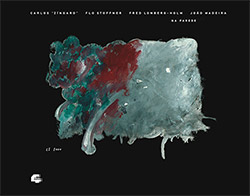


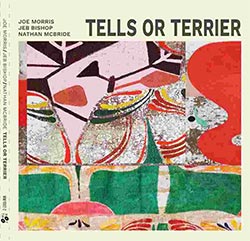
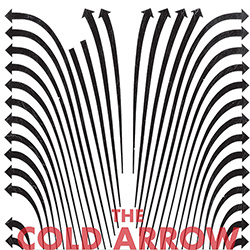

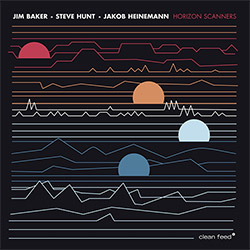

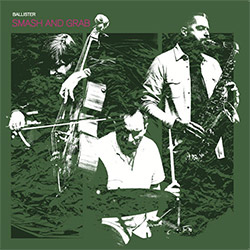

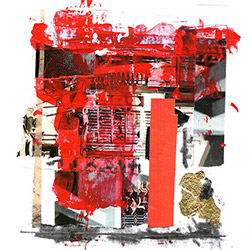
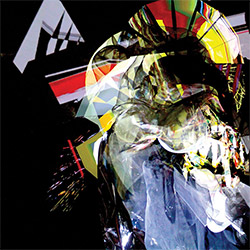
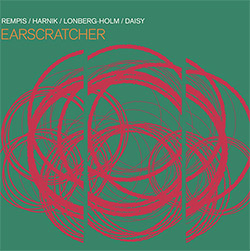
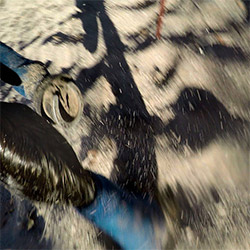


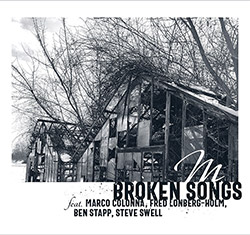
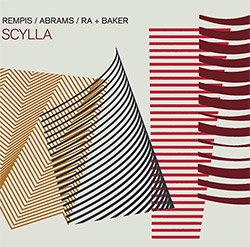


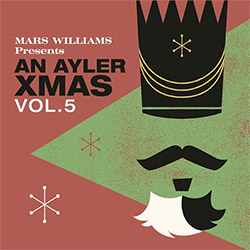


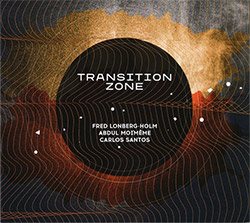
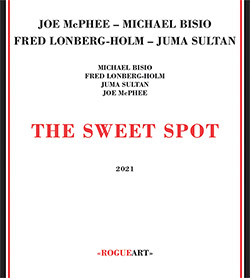



![Eternities: Rides Again [CASSETTE]](https://www.teuthida.com/productImages/misc4/36247.jpg)

![Lopez, Francisco: Untitled (2021-2022) [2 CDs]](https://www.teuthida.com/productImages/misc4/36438.jpg)




![Eventless Plot | Haarvol: The Subliminal Paths [CASSETTE + DOWNLOAD]](https://www.teuthida.com/productImages/misc4/36232.jpg)












![Eventless Plot | Francesco Covarino: Methexis [CASSETTE + DOWNLOAD]](https://www.teuthida.com/productImages/misc4/36231.jpg)

![Brown, Dan / Dan Reynolds: Live At The Grange Hall [unauthorized][CASSETTE]](https://www.teuthida.com/productImages/misc4/36245.jpg)




![Das B (Mazen Kerbaj / Mike Majkowski / Magda Mayas / Tony Buck): Love [VINYL]](https://www.teuthida.com/productImages/misc4/36329.jpg)


![Hemphill Stringtet, The: Plays the Music of Julius Hemphill [VINYL]](https://www.teuthida.com/productImages/misc4/36409.jpg)



![Halvorson, Mary Septet: Illusionary Sea [2 LPS]](https://www.teuthida.com/productImages/misc4/17952.jpg)




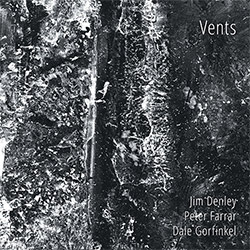
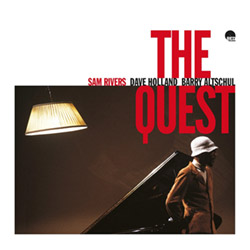
![Re-Ghoster Extended: The Zebra Paradox [VINYL]](https://www.teuthida.com/productImages/misc4/36204.jpg)
![FDF Trio: Possibility And Prejudices From Within A Cup [VINYL]](https://www.teuthida.com/productImages/misc4/36205.jpg)
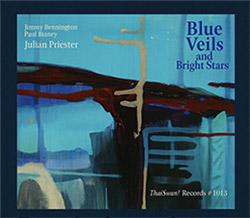

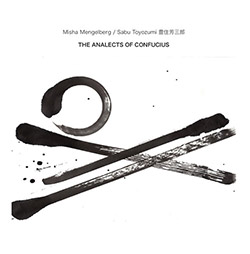

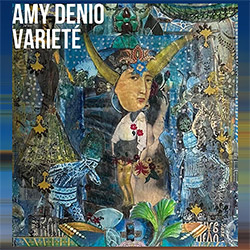



![Money : Money 2 [2 CDs]](https://www.teuthida.com/productImages/misc4/35894.jpg)




![Klinga, Erik: Elusive Shimmer [VINYL]](https://www.teuthida.com/productImages/misc4/36258.jpg)
![CHANGES TO blind (Phil Zampino): Volume 9 - I Wave on a Fine Vile Mist [CD + DOWNLOAD]](https://www.teuthida.com/productImages/misc4/36061.jpg)

![Wallmart / Rubbish: Asset Protection [split CD]](https://www.teuthida.com/productImages/misc4/35900.jpg)


![+Dog+: The Family Music Book Vol. 5 [2 CDs]](https://www.teuthida.com/productImages/misc4/35897.jpg)
![Kuvveti, Deli : Kuslar Soyledi [CASSETTE w/ DOWNLOAD]](https://www.teuthida.com/productImages/misc4/36107.jpg)

![Nakayama, Tetsuya: Edo Wan [CASSETTE w/ DOWNLOAD]](https://www.teuthida.com/productImages/misc4/36105.jpg)




![Yiyuan, Liang / Li Daiguo: Sonic Talismans [VINYL]](https://www.teuthida.com/productImages/misc4/35957.jpg)






![Palestine, Charlemagne / Seppe Gebruers: Beyondddddd The Notessssss [VINYL]](https://www.teuthida.com/productImages/misc4/36206.jpg)
![Palestine, Charlemagne / Seppe Gebruers: Beyondddddd The Notessssss [NEON GREEN VINYL]](https://www.teuthida.com/productImages/misc4/36207.jpg)

![Laubrock, Ingrid: Purposing The Air [2 CDs]](https://www.teuthida.com/productImages/misc4/35639.jpg)

![Yoko, Ono / The Great Learning Orchestra: Selected Recordings From Grapefruit [2 CDs]](https://www.teuthida.com/productImages/misc4/35841.jpg)









![Zorn, John / JACK Quartet: The Complete String Quartets [2 CDs]](https://www.teuthida.com/productImages/misc4/35609.jpg)

![Lonsdale, Eden: Dawnings [2 CDs]](https://www.teuthida.com/productImages/misc4/35480.jpg)



![Sorry For Laughing (G. Whitlow / M. Bates / Dave-Id / E. Ka-Spel): Rain Flowers [2 CDS]](https://www.teuthida.com/productImages/misc4/35985.jpg)

![Rolando, Tommaso / Andy Moor : Biscotti [CASSETTE w/ DOWNLOADS]](https://www.teuthida.com/productImages/misc4/36106.jpg)


![Electric Bird Noise / Derek Roddy: 8-10-22 [CD EP]](https://www.teuthida.com/productImages/misc4/35970.jpg)








![Elephant9 : Mythical River [VINYL]](https://www.teuthida.com/productImages/misc4/34624.jpg)



![Elephant9 with Terje Rypdal: Catching Fire [VINYL 2 LPs]](https://www.teuthida.com/productImages/misc4/35355.jpg)
![Deerlady (Obomsawin, Mali / Magdalena Abrego): Greatest Hits [VINYL]](https://www.teuthida.com/productImages/misc4/34876.jpg)







![Surplus 1980: Illusion of Consistency [CD]](https://www.teuthida.com/productImages/misc4/35069.jpg)
![Staiano, Moe: Away Towards the Light [VINYL + DOWNLOAD]](https://www.teuthida.com/productImages/misc4/35037.jpg)
![Coley, Byron: Dating Tips for Touring Bands [VINYL]](https://www.teuthida.com/productImages/misc4/17906.jpg)

![Lost Kisses: My Life is Sad & Funny [DVD]](https://www.teuthida.com/productImages/misc4/lostKissesDVD.jpg)